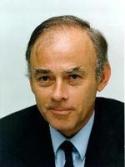
Biography:
Ysbrand Poortman is a Biologist by education and has a daughter with spinal muscular atrophy. After teaching in high school and academia, he focused on issues related to medical research and genetics and on strengthening parent/patient organizations.
In 1967 he founded the Dutch Association for Neuromuscular Diseases and in 1975 he founded the Dutch Genetic Alliance of Parent / Patient Organizations.
From 1992-2000 he has been vice president of the European Alliance of patient and parent organizations for Genetic Services and innovation in medicine, recently evolved in the European Genetic Alliances Network (EGAN, Brussels) of which he is senior advisor. He is the founder- & board member of the Centre for Clinical Genetics of the Erasmus University from 1980 to 2000 and has a senior advisory function at the Flemish Institute of Biotechnology. He is a member of the college of chairs of the World Life Sciences Forum, BioVision and of various other advisory (Dutch National Health Council), university curatorial and expert committees on the national, European and global level. He is also Secretary General of the International Genetic Alliance of Patient Organisations (IGA, Washington).
Abstract:
The evolution of the patient; from bedridden and miserable to managers of their health problems
For centuries patients have been passive and submissive often bedridden and feeling miserable; but not anymore. They are evolving to drivers of healthcare and to managers of their own health problems.
Parent and patient groups are now in a position to play an active role in bridging the gap between science and the unmet needs in society. They play a role in healthcare policy, in the promotion of genetic services, in the drug development process, in regulatory affairs and in promoting access to treatment. They are also alert to issues such as patients rights, quality, safety, equity and sustainability. Their voice in the scientific, political and media arenas is both recognised and appreciated.
Life Sciences have made an enormous contribution to better health and a more sustainable environment.
Today, many patients benefit from the development of new or better treatments. Moreover science has brought great options for prevention and for health maintenance.
However there is still a big gap between the sophisticated achievements of science and the great progress in molecular technologies on the one hand and the enormous needs in many millions of families burdened everyday by lifelong serious and genetic/chronic diseases.
8 million children - 6 % of total births worldwide - are born every year with a serious genetic or partially genetic defect and over 3 million of them will die before the age of 5 years. Without adequate care the majority of the rest will be disabled for life.
These figures could be reduced by 50% with the present knowledge and techniques.
Families involved in these diseases, realising the opportunities, have united and organised themselves on national, regional and international levels and this both disease bound as well as subject bound (disability, rare disease, genetics).
Their membership has been largely extended by accepting as a member carriers and persons pre symptomatic diagnosed or with a predisposition or increased risk for a specific disease.
Together they are numerous in number, rich in experience, great in networks, impressive in motivation and determination and working together with all relevant stakeholders for paving their way to treatment and better care. Recently this development has been extended by collaborations with science and with industry.